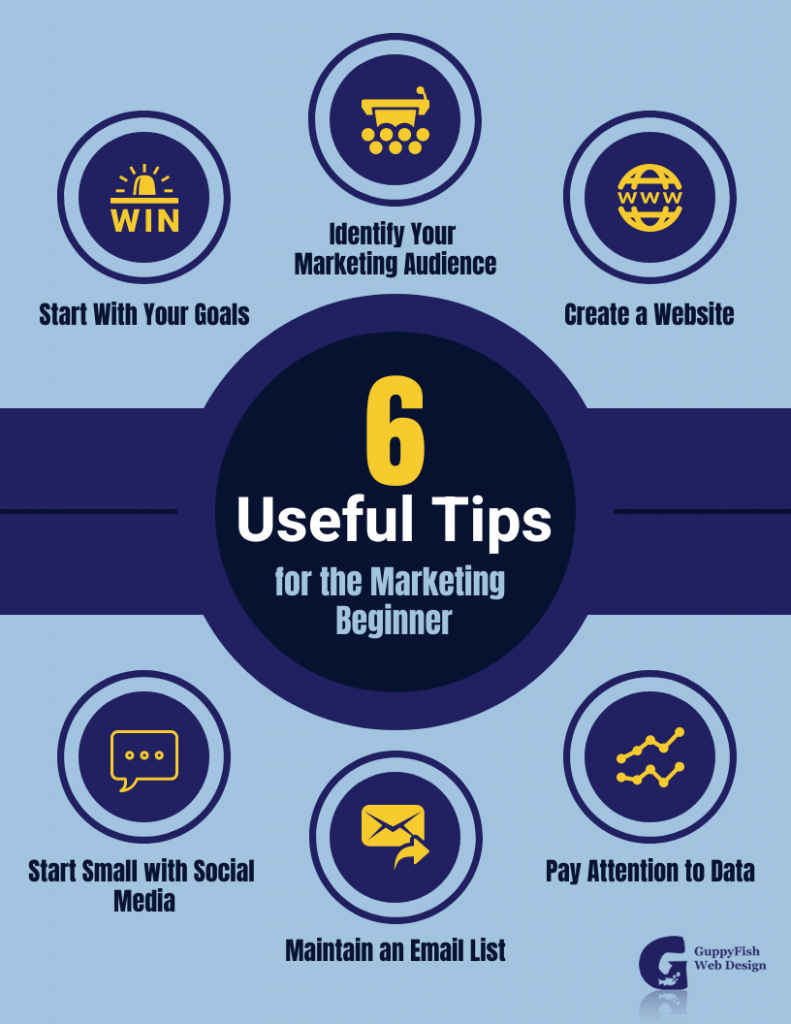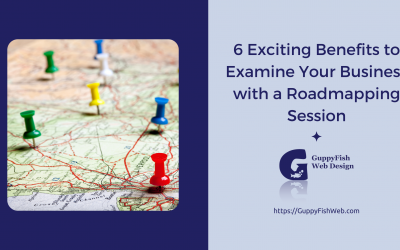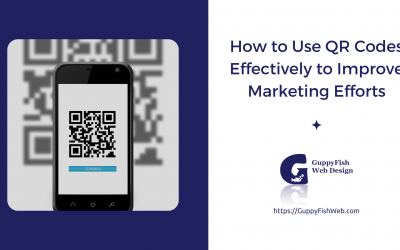Not everyone wakes up one day and decides to go into digital marketing. In fact, some of us are dragged into it like a toddler who doesn’t want to go to the dentist. If you start a business, you become a marketer whether you want to or not. I mean, that is if you want people to give you money in exchange for your goods or services. You have to reach people and convince them WHY they should part with their hard earned funds. Perhaps you work for someone without a marketing department and find yourself with these duties dropped in your lap. I see this a lot with medical practices. An office manager or physician suddenly finds themselves managing a social media account or dealing with the website. Whatever the scenario, congratulations!! You, my friend, are a marketing beginner (whether you like it or not).
When I first started my website design business, I was going to build websites. That’s it. It took a while to dawn on me that I had to market myself. It took even longer to realize that these websites serve as marketing tools for business owners. Even though it seems like that should have been obvious, I suddenly found myself a marketing beginner. I’ve learned a lot since I started this business in 2009, so allow me to share some of that with you.
Marketing Beginner 101: Start with Goals
Before you do anything in your business, and I mean anything, you need to start with your goals. Forbes even lists it as its number one marketing advice for beginners. Randomly throwing stuff at your audience doesn’t work. You need to identify your main goals and align your marketing accordingly.
Make sure those goals are specific, too. If you’d like more subscribers to your email list, how many would you like to attract per month? Instead of saying you want more people to sign up for a demo, say what percentage you’d like to increase each quarter. Regardless, you must start with the end in mind by identifying your goals.

Identify Your Marketing Audience
Next, you need to know your audience. Get to know your target market and what makes them tick. Who will be most likely to want or need what you have to sell? This is your main persona. You want to identify this person’s age, life stage, and what makes this person tick. What goals might he or she have? How does this person consume information? What’s important to this individual? Identifying goals and where this person spends time can help you direct your marketing to reach the right folks. If you want to target moms of young children, for example, it won’t work for you to provide the same messaging as someone trying to reach retirees. It just doesn’t work that way.
Create a Website
Once you identify your target persona, you need a place for them to go. Even if you can’t afford to pay someone to create it, a marketing beginner still needs a website to serve as a “hub” for all their marketing efforts. Some people rely on social media at first, but you can’t count on that. I’ve said it many times but will repeat for those who need to hear it: social media does not replace a website.
While your website doesn’t need to be fancy or have all the bells and whistles, it must appeal to that persona you created. What colors and features will most speak to them? YOUR favorite things don’t matter here. It matters what your desired audience will prefer.
You’re a Marketing Beginner – Start Small with Social
A marketing beginner will not know everything. You will be tempted to do everything at once. Don’t. You don’t need to be on all the social media platforms. Let me say that again… You don’t need to be on all the social media platforms!! You may end up doing ok on a couple, but you’ll spread yourself so thin that you won’t see great results on any of them.

Find the social media sites where your target audience hangs out, and leverage them as much as you can. Start by offering value and education. You want people to know they can trust you. Direct people to your website and invite them to interact with you. Feature members of your staff, your location, and anything that makes you seem more human. Social media is relational. Once you establish yourself, then try branching out to other social media platforms.
Maintain an Email List
Email marketing can be very powerful. In fact, keeping an engaged list can do more than being active on social media. Why? Well, people take a break from social, but they can’t take one from email. They’d miss too much. Nobody ever says they plan to give up email for Lent… not so with Facebook and other social media platforms.
If you use it correctly, you can get a lot of bang for your buck. If you don’t have a huge list, like most people who consider themselves a marketing beginner, you can start for free! MailChimp’s free account provides many powerful tools, and you don’t even give them a payment method until you hit 1000 subscribers.
Use Data
Lastly, make sure to allow data to drive your marketing efforts. Pay attention to your website analytics. Who visits your website? How do they find you? What channels could use a little love? You don’t have to have a master’s in analyzing data to look at a few website metrics and see what seems to work for you.
The lesson here? You don’t have to feel overwhelmed as a marketing beginner, and there’s tons of help out there. If I had to add one thing to the tips above, I’d say to find yourself a community of people who can support and help you. You can search twitter the hashtags #marketingtwitter or #freelancechat for those who try to market themselves as a freelancer. That last one has absolutely had a huge impact on my business. So start slow, and keep swimming along!




Great beginner marketing insights! Concise and informative guide for those diving into marketing strategies. Helpful content indeed!
Thank you for reading and for your kind words!